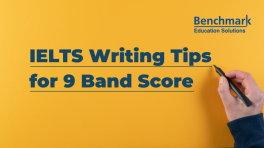

The topic of media and the internet is a common subject on the IELTS examination. For example, you may be asked about the consumption of news and media, or you could be asked about the impact of the internet on society. Therefore, you must have a good grasp of relevant words and phrases so that your answers sound professional and accurate. The following page will provide you with some essential IELTS vocabulary related to media and the internet. There are also some exercises for you to practice using the words and phrases in context.
Table of Contents
1. General Media Vocabulary
- Breaking news – Information about events currently occurring or developing
- Broadsheet – A newspaper printed on larger paper and is viewed as more serious and trustworthy than tabloids
- Biased – Unfairly favouring or opposing something or someone
- Censorship – The suppression of any books/films/news etc that are deemed threatening, obscene, or politically unacceptable
- Credibility – How reliable, trustworthy, or believable something is
- Free press – Media outlets are allowed to report on stories with little or no interference from governments.
- Editorial – An article written by the editor that gives a view on a topical issue
- Fake news/Disinformation – Untrue information/news intended to mislead
- Frontpage news – The most important story that appears on the front page
- Headline – The title at the top of a news article
- Journalism – The act of investigating news
- Journalists – People that investigate or report on the news for media outlets
- Mainstream media/Mass media – Media that can reach large numbers of people in a short time. Designed for mass consumption. For example, the BBC, CNN, the New York Times etc.
- Obituaries – The section of the newspaper that reports on deaths/ A short written passage about someone who has died
- Paparazzi – Freelance photographers who follow celebrities in order to take photos
- Press conference – An interview involving a person of interest who answers questions or provides information to the press
- Print media – Media that is printed on paper. For example, newspapers and magazines
- Propaganda – Biased or misleading information used to promote a particular cause
- Tabloid – A smaller sized newspaper that is typically filled with sensational popular stories. Often regarded as unserious and sensationalist.
2. Activity 1 – General Media Vocabulary Activity
| Activity 1 |
- tabloid
- broadsheet
- credible
- free press
- propaganda
- misinformation
- journalists
3. Internet/Online Media Vocabulary
Internet/Online Media Vocabulary – The growth of the internet and technology has resulted in many new words and phrases that are specifically used to discuss the internet. Questions related to this topic are common on the IELTS examination and you are often asked your opinion about online issues and internet use. Here are some of the most common words and phrases you will need to discuss the internet and online media. There is an activity for you to practice using the words in context.
- To block – To prevent someone from using or seeing a particular account or service online
- Blog – A regularly updated page or website that is usually managed by one person or a small group
- Alternative media – Media content that is generally independent and non-mainstream
- To browse – To view different webpages on the internet
- Clickbait – Internet content where the main intention is to draw attention and persuade users to click on a link to a particular webpage
- Crowdfunding – Funding projects by using lots of small donations from internet users
- Ecommerce – Businesses and transactions operating on the internet
- To follow – To subscribe to the page of a person or organisation on a social media platform
- Hacker – A person who gains unauthorised access to information/accounts online
- Influencer – A person who influences consumers online by promoting or discussing products/services
- Internet/Online safety –The process of staying safe from fraud, exploitation, or other malicious acts online
- Livestream – To broadcast content live on the internet
- Phishing – Sending fraudulent emails to entice people into providing personal information or money
- Premium content – Internet content that must be subscribed to and paid for
- Trending – Something that has become extremely popular online
- Troll – A person who deliberately offends or upsets other people online
- Sensationalism – Exaggerated news that is designed to get people’s attention by shocking them
- Tweet(v) – To make a post on the social media site Twitter
- Viral – A story or post that has become extremely popular online
4. Activity 2 – Internet/Online Media Activity
| Activity 2 |
- mainstream media
- tweet
- bias
- alternative media
- blogs
- sensationalism
- clickbait
5. Media, Phrasal Verbs, Idioms and Collocations
Media Phrasal verbs, idioms and Collocations – Below are some common phrasal verbs, idioms, and collocations you can use to talk about the media. There is a practice activity for you to see and use the words and phrases in context.
- Behind closed doors – In private
- Blow over – Something that will gradually disappear
- Cover up – To hide illegal or illicit activity from the public
- Hit the headlines – To become news or gather a lot of publicity for something
- Hot of the press – Very recent news
- Keep up with – To stay informed about certain events/news
- Leaked to the press – The unauthorised release of information to the media
- Pull the wool over someone’s eyes – To deceive someone,usually by giving false information
- Take by storm – To become popular or successful extremely quickly
- Tone down – To make something less intense, harsh, or extreme
- Turn a blind eye – To willingly pretend not to notice something, usually an illicit activity or rule-breaking
- Whistle-blower – A person who leaks information to the press
6. Media, Phrasal Verbs, Idioms and Collocations Activity
| Activity 3 |
- whistle-blower
- leaked
- toned down
- turning a blind eye
- behind closed doors
- keep up with
- blow over
- covering up
For more practice, Visit IELTS vocabulary for science.











